



He









DANILO MCGARRY
is
He














He









is
He









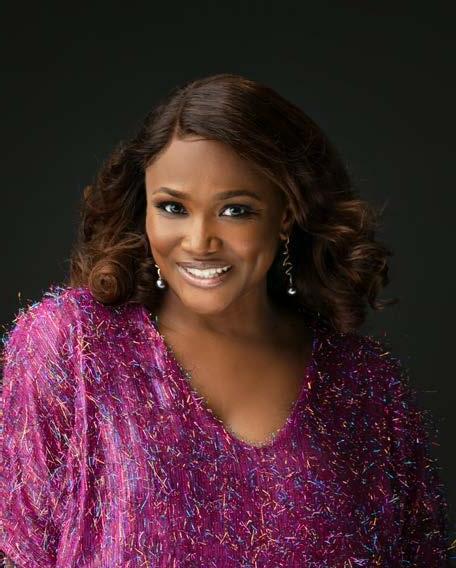

RKola Oshalusi @insignamedia Makeup: Zaron
ep. Akin Rotimi, Jr., is the House of Representatives’ spokesman and Chairman of the House Committee on Media and Public Affairs. His political journey is deeply rooted in a sense of duty to serve his community and country, inspired by his family’s rich legacy of public service. From all indications, he is following in the footsteps of his father, who served as a member of the House of Representatives in the Second Republic.
Rotimi, Jr. didn’t always work from within the Nigerian government structures. Earlier in his career, he engaged in philanthropy, focusing on pressing issues in Nigeria and post-conflict African nations. While those efforts provided essential support, he quickly realised that they often offered only temporary relief rather than creating sustainable, long-term change. Activism allowed him to advocate from the outside. Yet, he understood that lasting and systemic reforms could only be achieved by working within government structures, which led him to pursue a path in politics.
Read more about Rep. Akin Rotimi, Jr. on pages 8 to 10, where he discusses the pressures and expectations of being a public figure and much more.
You may become busy, and before you know it, your hair starts to exhibit signs of neglect, such as an itchy scalp. These signs tell you that your hair needs a wash. Our beauty page highlights five signs that you are not washing your hair enough.
A gym is a public space, and as such, there are certain behaviours that you shouldn’t exhibit. Leaving workout equipment lying around after use is a big no, no. So, our fitness page takes you through gym etiquette 101, a simple guide on how to behave at the gym.
As always, the movie review page has a playlist curated just for you. To download it, click on the instructions below the QR codes.
Until next week, enjoy your read.


@onahluciaa + 2348033239132
AUSTYN OGANNAH
PUBLISHER/EDITOR-IN-CHIEF
Executive Editor: Onah Nwachukwu @onahluciaa
Writer: Johnson Chukwueke
Graphic Design: Olaniyan John ‘Blake’
Digital Media: Oladimeji Balogun
Guest Art Director: Sunny Hughes ‘SunZA’

www.thewilldowntown.com thewilldowntown thewilldowntown


Chic Alternatives
CONFIDENTIAL COVER
What’s Luck Got to do With It
Rep. Akin Rotimi, Jr. Duty, Democracy, And Driving Change
11 Feel The Seoul of South Korea TRAVEL
5 Signs You Don’t Wash Your Hair Enough
Gym Etiquette 101
Healthy Treats Greek Yoghurt Recipe And Variants
6 Safe And Ideal Things That Can Go Into Treasure Island





Odun Ogunbiyi @oddbodandthecity - Contributing Editor
Odunayo Ogunbiyi is an ex pharmacist with a passion for food and pampering. Writing about her exploits wherever in the world she may find herself is just her way of staying sane in this zany world.
Boluwatife Adesina @bolugramm - Contributing Writer
Boluwatife Adesina is a media writer and the helmer of the Downtown Review page. He’s probably in a cinema near you.
Dorcas Akintoye
Dorcas Akintoye is a dedicated writer with more than 2 years prolific experience in writing articles ranging from food, entertainment, fashion and beauty. She has a National Diploma in Mass Communication from Kwara State Polytechnic, Ilorin. She loves writing, listening to music and playing scrabble. She is a highly-skilled, enthusiastic, selfmotivated professional writer.
Sally Chiwuzie @unshakable.is.a.state.of.mind
- Contributing Writer
Sally Chiwuzie is a non-practising barrister who owns the brand #Unshakable. She is the author of Silent Symphonies, a fictional love story, and the creator of the podcast Chronicles of #Unshakable Truths.















BY DORCAS AKINTOYE
Even though jeans are a classic piece, there are occasions when it’s great to switch things up. Numerous fashionable alternatives to jeans are available, whether you’re dressed up for a special occasion, seeking greater comfort, or simply in the mood for something different. These six excellent choices can give you the same adaptability as jeans while adding a modern, stylish touch.

An easy way to instantly elevate any ensemble is with tailored pants. In contrast to jeans, tailored pants are frequently made of lighter materials, such as blends of cotton, linen, or even silk, which allow for comfort and breathability. Their flattering fit creates a sophisticated appearance that is ideal for brunch, work, or even a laid-back night out. For a polished appearance, pair highwaisted tailored pants with a top tucked in, or go casual by throwing on a fitted tee and sneakers.
1. WIDE-LEG PANTS

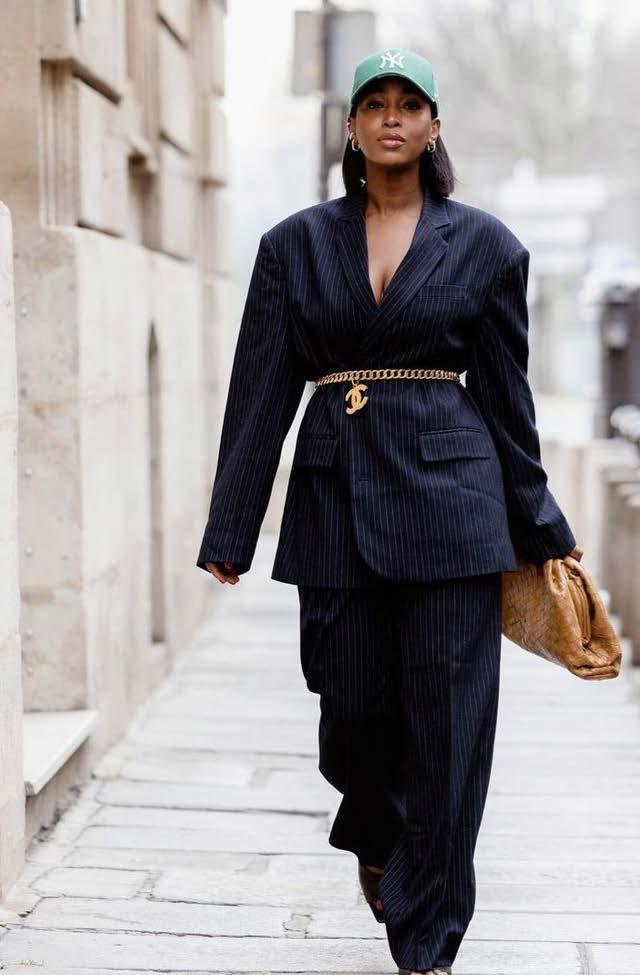
2.
In addition to being comfortable and fashionable, wide-leg pants offer a striking style that is guaranteed to turn heads. Wide-leg pants provide more room than jeans, making them ideal for warmer weather or situations when you want to feel unrestricted. They are available in various materials, from flowy satin or chiffon for a dressier look to soft cotton for informal occasions. Wear a crop top or fitted top with high-waisted, wide-leg pants for a smooth, elongating look. To complete the long, slender silhouette, choose heeled sandals.
Leather pants are the way to go if you want a more daring option than jeans. Leather trousers are available in various shapes, including flared, straight, and skinny, so you may pick one that looks good on you. Leather may seem heavy, but many contemporary choices include elasticity to make them more comfortable. Wear soft knits or oversized sweaters in neutral hues to counterbalance the boldness of leather pants. Complete the look with sneakers or ankle boots for an edgy yet approachable ensemble.
Joggers have developed into a fashion essential that can be comfortable and stylish, so they’re no longer simply for lounging. These days, joggers come in fashionable styles appropriate for occasions outside the gym. They are made of premium cotton, satin, or faux leather. Their cuffs and waistbands are frequently made of elastic, which makes them a comfortable and simple choice.


Midi skirts are a great substitute for jeans for people who want to add a feminine touch. They come in styles ranging from tailored pencil skirts to loose, flowing cuts, and they are sufficiently adaptable for both formal and informal settings. With their lovely, airy silhouette, midi skirts are ideal for various occasions, including weekend getaways and dinner dates.

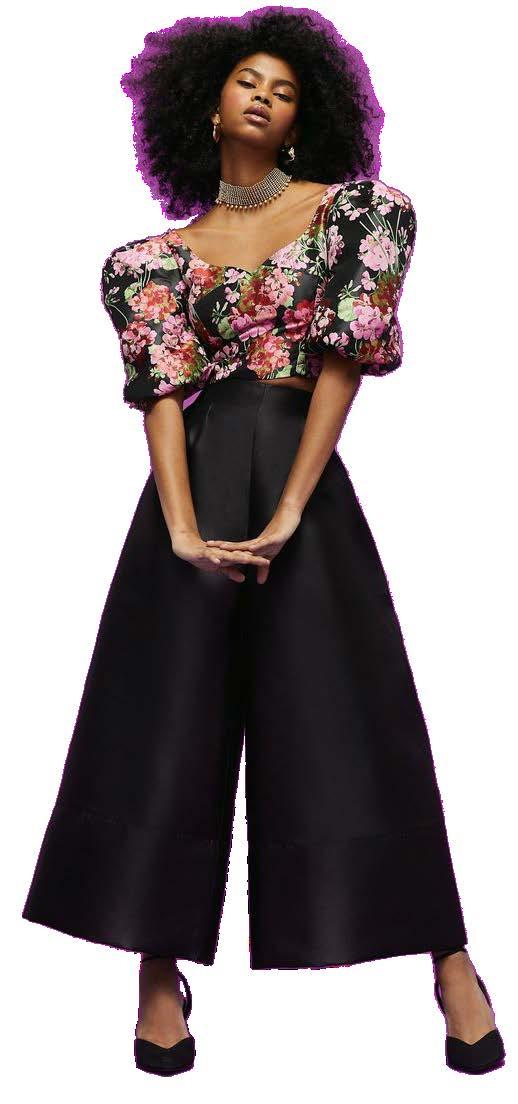
Culottes are the ideal combination of fashion and comfort. These cropped, wide-legged pants give regular trousers a humorous twist. They combine the functionality of pants with the flow and freedom of skirts. Culottes, which are frequently made of airy, light materials, are ideal for warm weather but may also be worn with tights in the cooler months.
Adding these six alternatives to your wardrobe will give you countless outfit options that let you show off your unique style outside of the denim box. Every situation and mood is catered for, from the fitted style of pants to the relaxed style of joggers. Give your jeans a well-earned vacation, and embrace these chic alternatives.
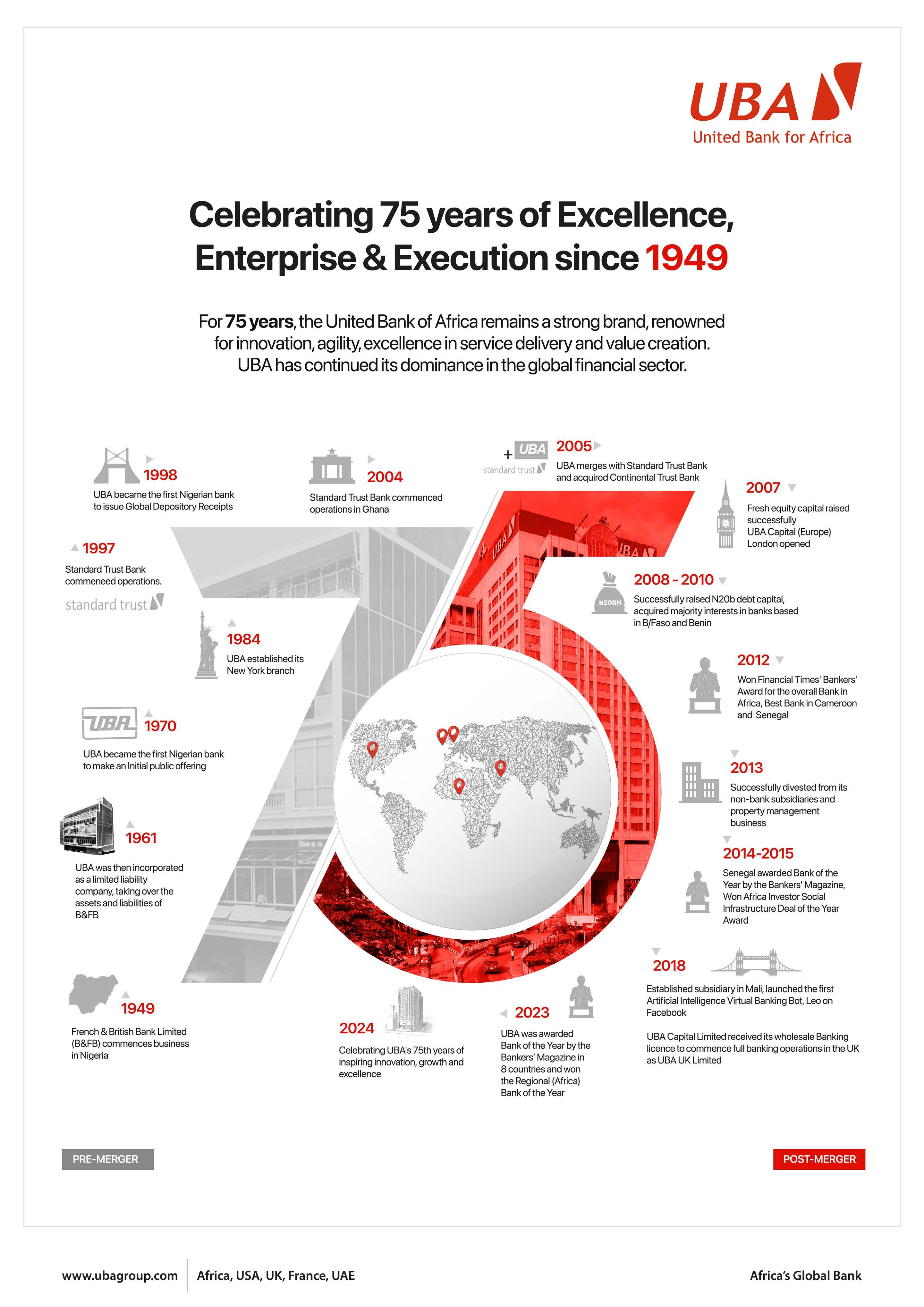

@unshakable.is.a.state.of.mind
If you have been following along over the last two weeks, you know that we have been working our way through the alphabet, letter by letter, in search of #Unshakable Truths. Each letter has revealed something essential, a guiding principle or insight that can help us stay #Unshakable in a constantly changing world.
Together, we are building a comprehensive list of these truths — a sort of A-to-Z guide to life’s most enduring lessons.
Last time, we paused at K. Now, let’s turn to L and maybe M to see what they can offer.
L is for Lucky …even luck needs a gentle nudge in the right direction. When Lucia stepped into The Crow’s Nest Pub, the place erupted. Cheers surged through the crowd, and heads turned as if pulled by a magnet.
Lucia had grown up in the neighbourhood, so she knew most of these faces — but they hadn’t seen her in ages.
Her rise to superstardom had turned her into something of a local legend, and tonight, catching a glimpse of her was like spotting a comet.
‘She’s so lucky!’ a wide-eyed punter murmured at the bar.
Lucia heard and turned, eyebrow raised.
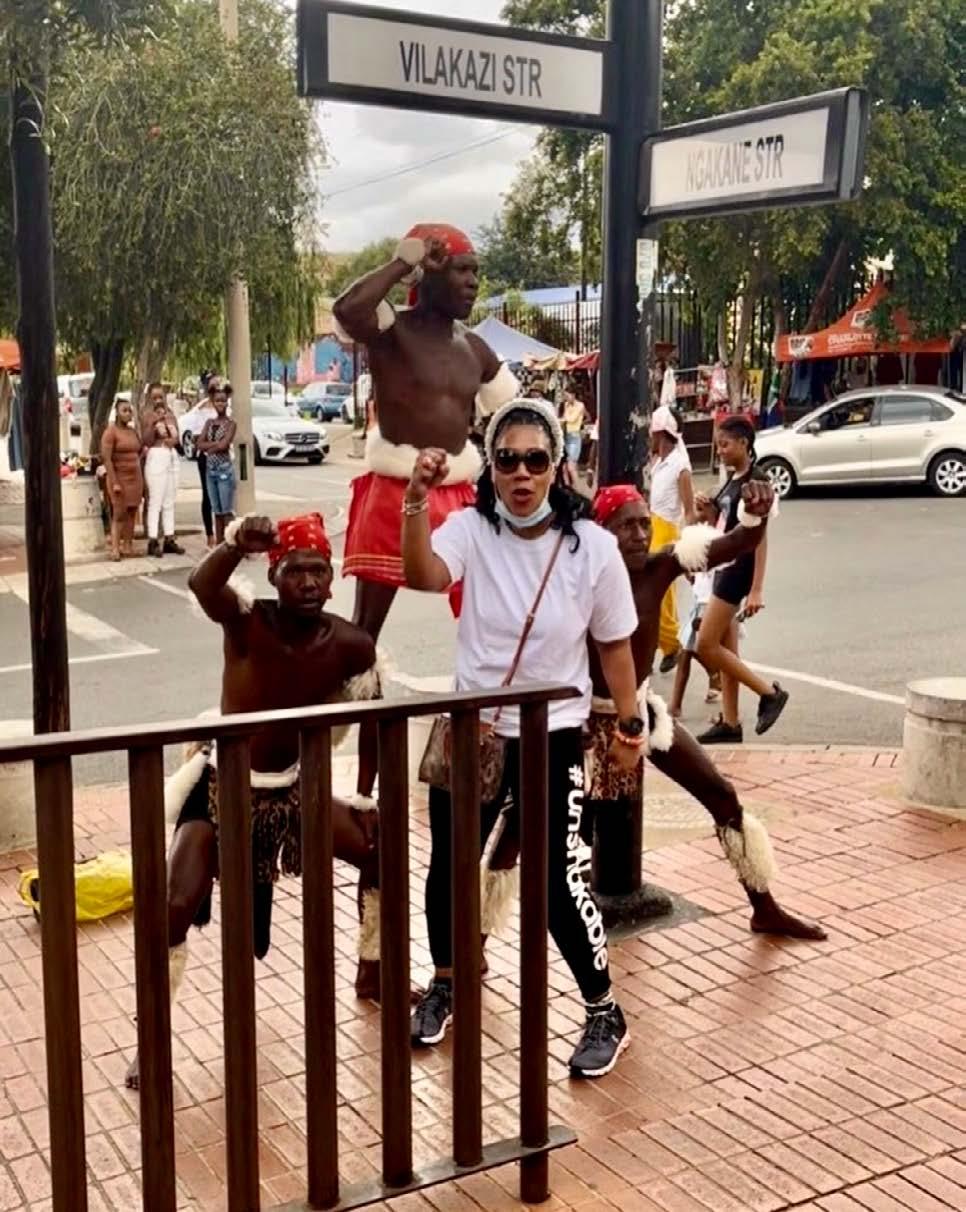

quitting.’ She paused, eyes scanning the crowd, letting them feel the weight of her words. ‘Nobody sees the sacrifices - the blood, the sweat, the tearsjust the glitter and glamour.”

She smiled a little wryly, shaking her head. ‘So, maybe I’m lucky, but true luck is winning the lottery. For the real-life dreams, even luck needs a gentle nudge in the right direction.’
Her voice softened, and for a moment, the pub felt like a quiet room.

excitable than the day before, or maybe they didn’t recognise her. She wore no makeup and hid behind a fringe, a scarf, and sunglasses for added camouflage. ‘Honestly, I’m just looking for a place to hide,’ she admitted with a sigh, letting herself relax into the familiar pub’s cosiness. She glanced at the landlady. ‘It’s funny… everyone seems to want a piece — an autograph, advice, a selfie, a chat. I love connecting, but sometimes, it’s… a lot. I feel like I never get to just be myself. I’m always giving out motivation, but sometimes I wonder… who motivates the motivator?’
‘Lucky?’ she asked, leaning in with a curious smile. She set her glass down and glanced around. Everyone fell silent.
She shook her head. ‘Don’t get me wrong, timing and chance matter. But people only see the result. Nobody feels the impact when you’re walking away from a steady income to pursue a dream no one else can even see.’
A hush spread through the pub as she continued. ‘Nobody is around for those long nights when you’re alone, staring at the ceiling, fighting back doubt; the times when you’re discouraged, on the verge of
Lucia’s words hung in the air, stirring something in some, confusing others. She looked around and shrugged. ‘That’s life, isn’t it? C’est la vie. Innit?’
M is for Motivation Who motivates the motivator?
The following day, Lucia found herself back at The Crow’s Nest Pub.
‘Well, look who’s here! Two days in a row — isn’t that lucky?’ said the landlady, giving Lucia a playful wink. Lucia chuckled, glancing around. Fortunately, the patrons were a bit less
A couple of weeks later, Lucia was sprawled across her sofa, enjoying a rare, peaceful evening at home, when her phone buzzed with a message from her sister. She’d been to The Crow’s Nest that evening, and apparently, the landlady had launched a new open-mic night. Lucia opened the clip her sister had sent, curious.
In the video, the landlady was standing in front of the mic, speaking with conviction. ‘Who motivates the motivator?’ she asked, echoing Lucia’s words.
‘It’s a question that reminds us that even the most inspiring people — those who lift others up every day — sometimes need a little support, too.’
Lucia smiled, her heart warmed. Sometimes, all it takes is a reminder that she wasn’t alone in her search for strength and understanding. Even the motivator could lean on the inspiration she found in others.
What spoke to you? Tell me, please. In the meantime, I wish you love and light and a little magic! See you next week!

Thepolitical landscape in Nigeria has seen significant change over time, with democracy offering a platform for those dedicated to the nation’s development. Many Nigerians now have the opportunity to directly participate in the country’s development and shape policy thanks to democratic processes. Through the legislative arm, elected officials play a major role in developing laws and policies that affect citizens’ daily lives. The Senate and the House of Representatives make up the National Assembly, and they both work to enact legislation and maintain the balance of power while speaking for the people. This legislative body has developed into a potent instrument for change, empowering leaders to tackle national concerns and further the nation’s progress.
Rep. Akin Rotimi, Jr., the Spokesman of the House of Representatives and representative of Ekiti North 1 (Ikole/Oye) Federal Constituency, is a prime example of this dedication to effective governance. With an advocacy and public service background, Rep. Rotimi Jr. has utilised his position to promote change for the country and his constituents. He has been instrumental as a Spokesman in addressing national issues, promoting growth-promoting policies, and guaranteeing
transparency and open communication between the House and the public. His zeal for significant improvements and his commitment to effective leadership have made him a respected voice in the legislative assembly and an advocate for constructive change.
In this interview with THEWILL DOWNTOWN’s Executive Editor, Onah Nwachukwu, Rep. Akin Rotimi, Jr. discusses his political career, his perspective on Nigeria, and the duties associated with his position. He highlights Nigerian democracy’s struggles and victories, the value of good communication in governance, and the actions required to promote long-lasting change.
What inspired you to pursue a political career, and how has the journey been so far?
My political journey is deeply rooted in a sense of duty to serve my community and country, inspired by my family’s rich legacy of public service. My father served as a member of the House of Representatives during the Second Republic, and my mother, a career educationist, retired as a Director in the Federal Ministry of Education. Early in my career, I actively engaged in philanthropy, focusing on pressing issues in Nigeria and post-conflict African nations. While these efforts provided essential support, I quickly realised that they often offered only temporary relief, rather than creating sustainable, long-term change. While activism allowed me to advocate from the outside, I understood that lasting and systemic reforms could only be achieved by working from within government structures. This insight motivated me to pursue a path in politics, where I could directly influence policy and drive meaningful, lasting solutions for my constituents. The transition from philanthropy to public service has been both challenging and rewarding, and I am especially grateful to my mentor, Dr. Kayode Fayemi, whose guidance was instrumental in helping me make this shift and find my place in public service.
How do you navigate the pressures and expectations that come with being a public figure?
This requires a strong commitment to transparency and accessibility. Given the widespread poverty in our society, expectations for immediate gratification are particularly high. However, I make it a priority to remain approachable and available, ensuring that I am always ready to listen to the concerns of my constituents. I also focus on sustainability rather than tokenism, emphasising projects that deliver long-term, meaningful benefits. By being honest and transparent about what I can and cannot achieve, I aim to set realistic expectations and build trust with those I serve. Regular communication is key to keeping people informed, engaged, and involved in the process. The support of my family, mentors, and faith has been invaluable.
What specific issues are you most passionate about, and why?
My campaign theme was “Leaving No One Behind,” which reflects my dedication to addressing the needs of all members of our community.
I am particularly passionate about issues affecting people with disabilities and ensuring access to healthcare, education, and other essential services. My ongoing projects include the construction of a School for Children with Special Needs, a Rehabilitation Home, and a Motherless Babies Home.
I believe these issues are pivotal in creating a ‘just and kinder society.’
understands the complexities of our legislative work. There is often a gap between perception and reality, and it is my responsibility to bridge it.
As a Spokesman, my mandate is to articulate the House’s decisions clearly and ensure that our actions are accessible to all Nigerians, even in the face of skepticism or misunderstanding. Historical distrust makes it even more difficult.
The Rt. Hon. Abbas Tajudeen-led 10th Assembly, is, however, committed to changing this narrative.
As Spokesman, how do you ensure transparency and effective communication between the House and the public?
We have embraced an Open Parliament (Agenda 6) as a key pillar of our 8-point Legislative Agenda (2023-2027). This, we achieve through regular media briefings, media rounds, newsletters, social media updates, and public consultations to communicate our decisions clearly and promptly.
As a Spokesman, my commitment to transparency includes providing access to legislative proceedings and instruments, allowing all Nigerians to participate in the democratic process. We have also partnered with organisations like Human Rights Radio/TV (Brekete Family) to reach a broader audience.
actively participate in governance. This is why public hearings and town halls are integral to our work.
“Early in my career, I actively engaged in philanthropy, focusing on pressing issues in Nigeria and post-conflict African nations. While these efforts provided essential support, I quickly realised that they often offered only temporary relief, rather than creating sustainable, long-term change.”
How do you handle situations where the House of Representatives faces criticism or public scrutiny? Criticism is an inherent part of democracy, and when the House faces scrutiny, I view it as an opportunity to engage with the public and clarify our positions. I believe in addressing concerns directly and providing facts and context to ensure a clear understanding of our actions. Listening to the voices of Nigerians is crucial, as constructive criticism helps us refine our work and strengthen our commitment to better serving the people.
Our commitment to transparency further ensures that we remain accountable for our decisions and actions. As a member of the Nigeria Institute of Public Relations (NIPR), I also consult with mentors and utilise professional tools to manage crises effectively.
“It is also crucial to
promote inclusion, transparency, and effective service delivery. Additionally, prebendalism and rent-seeking behaviours have entrenched a culture where politicians are expected to act as conduits for money, funding weddings, funerals, and various social functions.”
These values are at the heart of the bills and motions I have championed, as I work to create systemic change that benefits the most vulnerable in our society and ensures every individual has the opportunity to thrive.
What is the most challenging aspect of being the Spokesman of the House of Representatives?
One of the most challenging aspects of my role is ensuring that the public fully
This allows me to navigate challenges with a wellinformed, strategic approach, ensuring that we maintain public trust while remaining focused on our legislative duties.
What role does effective communication play in the success of the legislative process? Effective communication is essential to the success of the legislative process. It ensures that the public understands not only the intent behind our actions but also the challenges we face and the outcomes we aim to achieve. Without clear communication, mistrust and misinformation can quickly spread, undermining the credibility of the legislative process. As legislators, it is our responsibility to keep the public informed, promote civic engagement, and create an environment where people can
What do you see as the biggest challenges facing Nigerian politics today, and how can they be addressed? Trust and accountability are key challenges in Nigeria, as many feel disconnected from their leaders, leading to disillusionment with the political system. To rebuild trust and restore faith in our democratic institutions, we must focus on demonstrating accountability at all levels of government. It is also crucial to promote inclusion, transparency, and effective service delivery. Additionally, prebendalism and rentseeking behaviours have entrenched a culture where politicians are expected to act as conduits for money, funding weddings, funerals, and various social functions. This creates a cycle of corruption and diminishes accountability. Sadly, many people equate such practices with good leadership, which makes it harder to break the cycle. While we do our best to indulge some of these expectations, we are more committed to sustainable interventions that address the root causes of these issues and create lasting change.
In your opinion, what are the key areas where Nigeria needs political reform, and how can those changes be achieved?
One key area for reform is enhancing political inclusivity, particularly through key electoral reforms that ensure credible people are elected to office. As part of my efforts, I partnered with ElectHER,a civic organisation, to introduce the Independent Candidacy Bill, aimed at broadening the political space. If passed, it will allow credible individuals with a passion for public service to contest elections independently, giving Nigerians more diverse and quality choices in leadership. We must also address our leadership recruitment processes, governance structures, and fiscal accountability. Prioritising merit over patronage will help attract leaders who are genuinely committed to addressing grassroots challenges. Additionally, participatory budgeting, citizen advisory boards, and regular community consultations will foster transparency and ensure that leaders remain responsive to their constituents. Lastly, strengthening platforms like the National Orientation Agency (NOA) to facilitate citizen engagement and feedback will bridge the gap between leaders and the people, fostering trust and accountability. Through these reforms, we can build a political culture that values integrity, transparency, and genuine public service, ultimately supporting a more robust and inclusive democracy.
How can the government build trust and ensure accountability in governance, especially at the grassroots level?
Trust is built through transparency, accountability, and responsiveness to citizens’ needs. Strengthening grassroots institutions, and providing citizens with a platform to voice concerns and hold public officials accountable are crucial. This creates a government that is not only answerable to the people but also actively listens to them.
Additionally, regular community engagements, participatory budgeting, and social accountability mechanisms are essential in
fostering trust from the ground up. In this regard, the government is working to strengthen the NOA to promote transparency and citizen engagement.
What role should young people play in shaping the future of Nigerian politics?
Young Nigerians are the bedrock of our country’s future and play a crucial role in shaping the political landscape - bringing fresh ideas, energy, and a desire for change. To support this, the government must create an enabling environment for youth participation by lowering barriers to political entry, making it easier for young people to run for office and engage in governance.
I urge young Nigerians to take an active interest in governance, hold leaders accountable, and bring forward innovative solutions to our collective challenges. However, I also emphasise the importance of mentorship. Young people must be willing to learn, develop their skills, and rise through the ranks where necessary.
How do you see the future of Nigerian democracy in the next 10 years, and what steps should be taken to strengthen it?
In the next decade, I envision a more resilient and inclusive Nigeria—one that stands strong in the face of challenges and is truly representative. This can be achieved by prioritising institutional reforms, electoral integrity, civic education, and increased participation by women and youth.

I also believe in the importance of continuous dialogue between government and people to ensure that our democracy remains responsive to evolving needs. I believe the current administration’s reforms will yield tangible results and foster long-term stability.
Who has been the biggest influence on your life and political career, and why?
The biggest influence on my life and political career has undoubtedly been my family and mentors, whose values of service, integrity, and perseverance have shaped me into the person I am today. My father’s legacy of public service (especially as my predecessor in office) has been particularly impactful, providing a strong foundation for my path in politics.
In addition, mentors like Dr. Kayode Fayemi, the late Albert Okumagba, and Olumide Akpata, have played significant roles in shaping my approach to leadership and public service.
How do you maintain a work-life balance, given the demanding nature of your job?
Maintaining a work-life balance is challenging, especially in a demanding role like mine, but it’s essential for long-term success and personal well-being. I prioritise my time by making a conscious effort to carve out moments for my family, even amid the pressures of work.
Staying organised is also key— When needed, I delegate tasks to my team, and being present at the moment helps



me manage both my personal and professional life effectively.
What personal values do you hold dear, and how have they shaped your leadership style?
As an Ekiti man, integrity, accountability, and a deep commitment to service are core values in my life and leadership. Integrity is non-negotiable; I believe that honesty and transparency are the foundation for building and maintaining
trust. While accountability involves being answerable to constituents, ensuring that I consistently prioritise their needs and act in their best interest.
Service is at the heart of everything I do—a steadfast commitment to improving the lives of those who have entrusted me with leadership. My Ekiti heritage has also instilled in me a strong sense of fairness and determination. While some may view this as “stubbornness,” it’s rooted in my unwavering belief in doing what is right, regardless of the challenges.

Gyeongbokgung Palace
Built in 1395, the majestic Gyeongbokgung Palace is the largest of Seoul’s five Grand Palaces and a symbol of the Joseon Dynasty. With so much to admire, visitors get to explore the beautiful architecture and expansive courtyards and watch the colourful Changing of the Guard ceremony. Still located in Gyeongbokgung Palace, there are more sites you wouldn’t want to miss, such as the Gyeonghoeru Pavilion, the National Folk Museum, and the Changing of the Guard Ceremony. It’s almost like a never-ending exploration of beauty and luxury when visiting the Gyeongbokgung Palace.

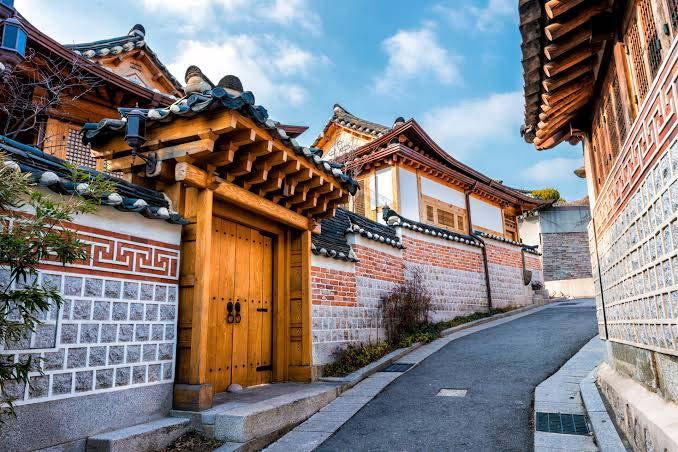
Lotte World
Lotte World is the world’s largest indoor amusement park for families or those seeking entertainment. It is a massive recreational complex that offers an unforgettable experience for tourists of all ages. This iconic destination features a theme park, ice rink, and lake, ensuring endless fun and excitement. Visit the Folk Museum to discover Korea’s rich cultural heritage. Enjoy the serene surroundings of Seokchon Lake, and do not miss the stunning night views of the city.
Bukchon Hanok Village
Tucked away in the heart of Seoul is the tranquil Bukchon Hanok Village, which gives visitors a peek at what life was like back in the day. This traditional Korean village is filled with hundreds of hanoks (traditional Korean houses) that date back to the 14th century. Other iconic experiences visitors have are winding streets lined with beautiful hanok and tea houses, traditional craft workshops and cultural exhibitions, scenic views of the surrounding hills, and Seoul cityscape.

BY JOHNSON CHUKWUEKE
Seoul is the ever-vibrant capital city of South Korea, a city that effortlessly combines tradition and modernity. With a rich cultural heritage, Seoul has numerous historical landmarks that show its rich cultural heritage. Seoul isn’t short on modern attractions, and it offers a glimpse into its blossoming economy and creative spirit. Regarded as the birth hub for K-pop and Korean wave, Seoul pumps so much energy, making it a fascinating destination for travellers worldwide. For this week’s travel guide, we will highlight some top spots worth exploring in Seoul, so let’s get into it.

Changdeokgung Palace And Huwon (Secret Garden)
Step into the Changdeokgung Palace, a UNESCO World Heritage Site boasting stunning architecture, rich history, and an effortless blend with nature. Take a relaxing stroll to the serene Huwon Secret Garden behind the palace, an alluring landscaped garden that leaves you basking in the beauty that Mother Nature has to offer. Visitors are in for a mesmerising time at the Changdeokgung Palace.

Hongdae
Regarded as Seoul’s trendiest neighbourhood, Hongdae welcomes you to immerse yourself in its youthful energy. It was a former arts college town that has become a hotspot for fashion, music, and nightlife. Spend time exploring the streets lined with indie boutiques, art galleries, and street food stalls. Visit Hongdae to experience Seoul’s creative culture.
Seoul is a dynamic city with a rich history, cutting-edge architecture, and diverse cultural experiences. Don’t miss out on these must-see sites while visiting South Korea’s captivating capital. ANJEONHAN YEOHAENG!
BY DORCAS AKINTOYE
Maintaining healthy hair requires regular cleaning. It might be easy to underestimate how much your hair needs to be washed. Life may become busy, and before you realise it, your hair might begin to exhibit signs of neglect. This article will examine five obvious indicators that you’re not washing your hair frequently enough.
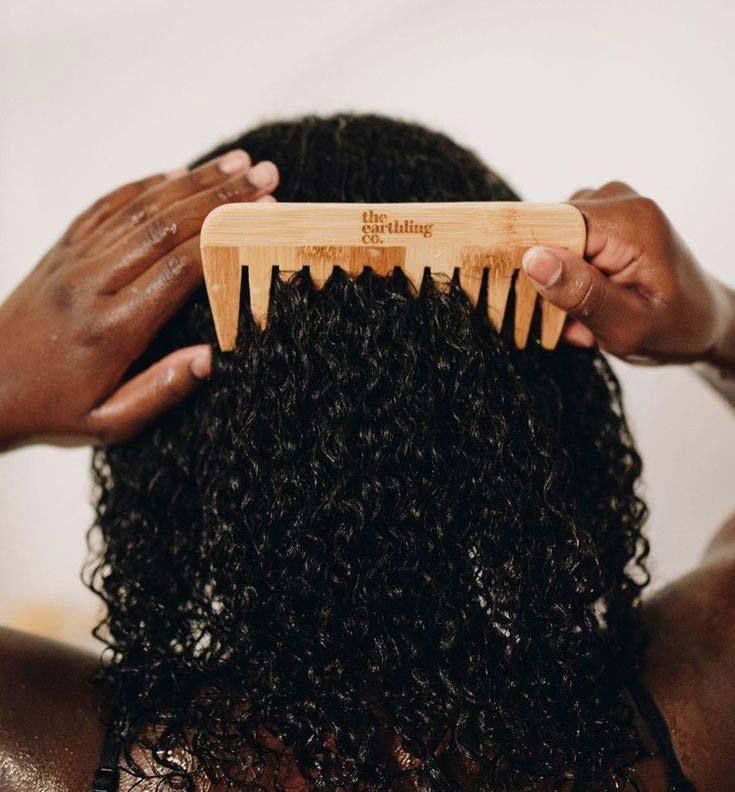
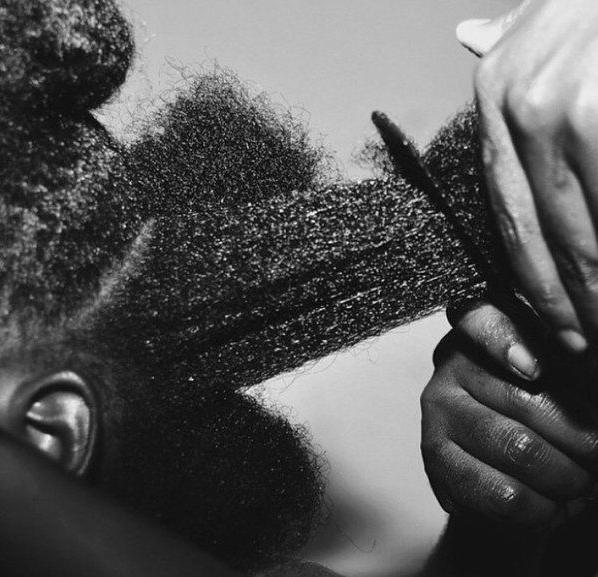
(1) GREASY OR OILY SCALP
If your scalp feels greasy or oily, that’s one of the most evident signs of your hair needing to be washed. Your scalp produces natural oils called sebum to keep your hair hydrated and healthy. However, these oils can accumulate if you don’t wash your hair frequently. Your scalp needs to be washed if it seems shiny or feels slippery to the touch.
(2) UNPLEASANT ODOUR
The smell of your hair getting bad is another indicator that you should take care of it. Sweat, tobacco, and even food odours are all absorbed by your hair. Smells like these can cling and combine with oils and sweat from infrequent hair washings to give out an offensive stench. If you discover that your hair smells strange even when you haven’t been near anything stinky, it’s a clue that your hair needs a thorough cleaning.

(3) ITCHY SCALP
An itchy scalp may indicate that you aren’t washing your hair frequently enough. Accumulating debris, oil, and dead skin cells can irritate and make the scalp itchy. If ignored, this irritation can cause discomfort and possibly even dandruff. Frequent washing keeps your scalp healthy and soothes it by removing these contaminants. Therefore, it could be time for a wash if you find yourself scratching your head a lot.

(4) VISIBLE PRODUCT BUILDUP

A white, flaky residue on your scalp or hair strands may be noticed if you frequently use styling products like gel, mousse, or hairspray. This indicates product accumulation. The buildup of these products on your hair and scalp over time may cause your hair to feel thick or sticky. Your hair might lose its natural sheen and bounce and get weighed down if it isn’t regularly washed. A thorough cleansing is warranted if you find that your hair appears dull or feels gunky.
(5) YOUR HAIR LOSES VOLUME
It’s possible your hair hasn’t been washed in a long time when it begins falling flat. Due to the weight of extra grease, particularly at the roots, oily hair tends to lose its bounce and volume. Regardless of how much you style it, you can discover that your hair appears lifeless, limp, and flat. Regular hair washing will help you regain that natural volume and give your hair a fuller, more vibrant look.

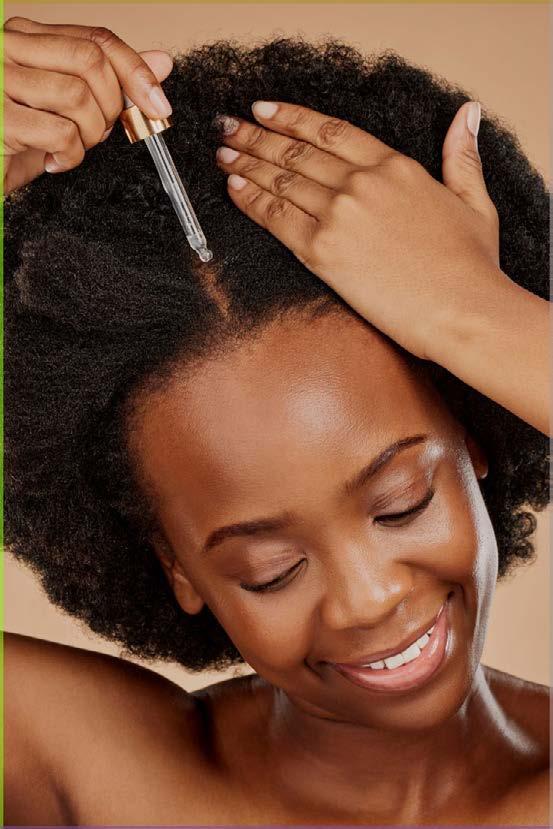
Although everyone’s hair type and lifestyle are unique, these five indicators show that your hair requires additional care. If you experience any of these symptoms, refresh your hair care regimen. Regular washing helps prevent buildup, keeps your hair looking its finest, and helps you maintain a healthy scalp and hair.
BY JOHNSON CHUKWUEKE
With so many people taking their fitness goals seriously and looking to be at their physical peak, it is no surprise to see gym spaces packed these days.
Considering that most gyms are shared spaces, it is important to maintain proper behaviour at all times. Whether you’re a seasoned gym-goer or new to working out, understanding proper gym etiquette is crucial for ensuring a positive experience for yourself and every other person at the gym.
For our fitness editorial this week, we will share a few guidelines for maintaining a comfortable, respectful environment while making the most of gym time.

One of the cardinal rules of gym etiquette is cleaning up after yourself. Everyone is already sweaty at the gym, making it easier for germs to be passed around, but the spread of germs can be reduced. Always wipe down equipment after use to avoid leaving sweat behind. Most gyms provide sanitation wipes or sprays, so be sure to use them.


While grunting or dropping weights may happen during intense workouts, try to minimise loud noises. Excessive grunting or slamming weights can be disruptive to others. Focus on maintaining control during your exercises. It is also advisable to bring your own headphones or earbuds to the gym. Not everyone enjoys your type of music. It may motivate you, but not everyone will feel the same way, and it’s best to listen to your music alone.

While you may have knowledge or expertise and feel you are doing it from the goodness of your heart, it’s important not to offer advice unless asked. Not everyone appreciates unsolicited feedback on their workout techniques. Many people just want to escape reality and keep to themselves while at the gym, so it’s best to help them only when they are in a dangerous situation.
Orderliness must be maintained at the gym at all times. After you’re done using dumbbells, plates, or other equipment, return them to their designated spots. Aside from making the environment look disorganised, leaving weights scattered across the gym floor can be hazardous and disrespectful to others. All gym equipment should be returned as soon as you are done using it.
PUT AWAY EQUIPMENT FOLLOW THE GYM’S DRESS CODE

Wear appropriate workout attire that is both functional and respectful. Avoid clothing that may be too revealing or uncomfortable for others in a shared space. Be respectful to yourself and also to everyone at the gym by covering up properly. Most gyms have specific dress codes, so it’s best to check those guidelines and stick to them.

Understanding and practising good gym etiquette helps create a respectful and enjoyable environment for everyone and contributes to a positive atmosphere that benefits everyone in the gym.
BY JOHNSON CHUKWUEKE
When it comes to yummy treats, no rule says it can’t be both delicious and healthy. Luckily, we have many healthy snacks you can munch on at any time, and you can be sure you will get as much nutrition from them as possible. Greek yoghurt topped with berries or grapes is one of these delicious treats to start your day with or even enjoy at any time of the day. This simple treat, packed with protein, probiotics, and antioxidants, boasts flavour and a wealth of health benefits. This article will guide you in creating a perfect bowl of Greek yoghurt with berries or grapes.
Ingredients
• Greek yoghurt (plain or flavoured)
• Grapes/Fresh berries (such as strawberries, blueberries, raspberries, or blackberries)
• Honey or maple syrup (optional for added sweetness)
• Granola or nuts (optional, for crunch)
Instructions
• Start by choosing your favourite type of Greek yoghurt. Choose plain yoghurt for a tangy taste or flavoured yoghurt for a sweeter taste.
• Wash and prepare your choice of fresh berries. You can use a single type of berry or create a colourful mix of different varieties.
• Spoon the Greek yoghurt into a serving bowl or glass.
• Add the fresh berries on top of the yoghurt, arranging them evenly to create an appealing presentation.
• Drizzle honey or maple syrup over the yoghurt and berries if desired, adjusting the sweetness to your preference.
• Sprinkle granola or chopped nuts on the yoghurt and berries for an extra crunch and texture.
• Serve immediately, and enjoy your delicious Greek yoghurt with grapes or berries.


As a bonus, you are free to experiment with other ingredients. You could try some of the variants below or even all of them.
* Tropical Twist


Swap the traditional berries for tropical fruits like mango, pineapple, and kiwi for a refreshing twist.
* Nutty Delight
Add a tablespoon of almond or peanut butter to your Greek yoghurt and berries for a creamy, nutty flavour.
* Chocolate Indulgence
Sprinkle dark chocolate chips or cocoa nibs over the yoghurt and berries for a decadent treat.
* Protein Powerhouse
To boost the protein content of your snack, mix a scoop of protein powder with the Greek yoghurt before adding the berries.


With these step-by-step processes, you can create a healthy snack to thrill your taste buds at any time. The best thing is that you can always tweak this recipe to your taste. You could substitute berries for any other fruit you feel would be suitable. It’s all about you and what you enjoy. BON APPETIT!

One of the most popular period hygiene products is a tampon. Tampons are made of cotton or a cotton-rayon blend, and they are safe to use as long as you follow a few fundamental rules. Tampons are made to absorb menstrual blood efficiently. To stop bacteria from growing and causing Toxic Shock Syndrome (TSS), a rare but dangerous illness, change them every four to six hours. Remember to use the appropriate absorbency level for your flow.

BY DORCAS AKINTOYE
The vagina requires careful attention because it is a delicate and selfcleaning organ. Many myths and misconceptions exist regarding what is appropriate to insert in the vagina, but this article focuses on safe, medically-approved items that can promote health, maintain hygiene, and even make your menstrual cycle more comfortable. Understanding that not all products branded as “vaginal care” are safe is crucial, let’s explore six items that are both safe and beneficial for vaginal health.

Junior is allowed to enter buttholes, vaginas, and mouths. It is important to wear a condom to prevent STIs and unintended pregnancies. You should only use flavoured condoms during oral sex due to the possibility of vaginal lining irritation.
Lubricants can improve comfort, particularly if you suffer from dryness. Water-based and silicone-based lubricants are the two safest varieties for vaginal usage. Water-based lubricants are the best since they are non-irritating, easy to remove, and work with all kinds of condoms. Silicone-based lubricants typically last longer than water-based ones and are safe for vaginal use. Oil-based lubricants, however, should be avoided since they can cause irritation and increase the risk of infection.
The fingers feel fantastic, too. Fingers are fun if the person’s nails are maintained neat, clipped short, and have sharp edges filed away. You can enhance your safer sexual practices by applying lubricant and donning latex gloves, which are readily available in pharmacies.



Small weights called Kegel balls help build stronger pelvic floor muscles supporting the bowels, bladder, and uterus. Sexual satisfaction and bladder control can both be increased by strengthening these muscles. Be sure that Kegel balls are constructed from body-safe materials, such as medicalgrade silicone, so that they can be used safely. To improve your strength, start with a lighter ball and work your way up to heavier ones. Using them under supervision is ideal, particularly if you’ve never done pelvic floor exercises before.

As long as they are constructed from body-safe materials like medical-grade silicone, glass, or stainless steel, sex toys can be a fun and safe addition. Make sure the toy is made for vaginal use when selecting it, and stay away from anything that can be porous or difficult to clean because it can harbour bacteria. Toys should always be cleaned before and after usage. For added protection, think about including a condom with the toy. As long as comfort and cleanliness are given top priority, sex toys can promote intimacy and self-care.
One of the most crucial aspects of maintaining the health of your vagina is understanding what is safe to insert into it. Tampons, the penis, lubricants, fingers, Kegel balls, and sex toys are a list of ideal things that can be inserted into the vagina. Never forget to get medical advice before using any new product for your vagina to be sure it’s safe for you.
BY BOLUWATIFE ADESINA


Scan this with your camera or click to access the playlist (Youtube Music) Scan this with your camera or click to access the playlist (Spotify)
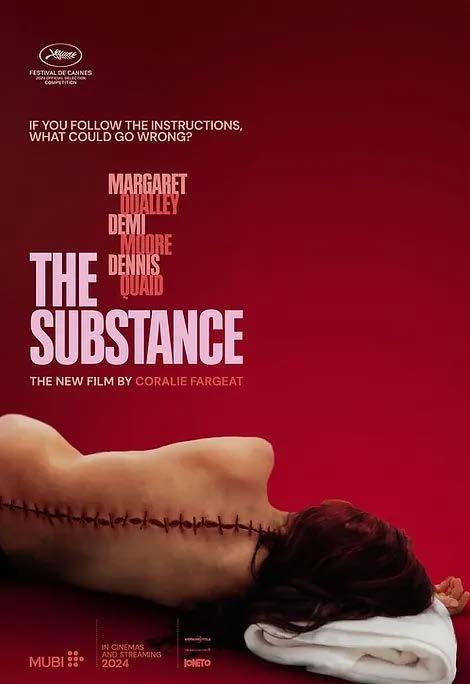
Mirror, mirror on the wall—why don’t you leave me alone?! As beauty standards soar to unattainable heights, the mirror is often a reminder of how we measure up to the world. Standing face-to-face with your mirrored image, it is too easy, almost enticing, to scrutinise imperfections. And now, the pursuit of “perfection” is fueled by an ensemble of substances from Botox to Ozempic that push people—particularly women—to probe their self-image. That’s business as usual, sold as a chic and sexy enhancement to everyday life. And if that wasn’t enough, the mirror has jumped from the confines of our homes into our pocket-size parasites that can document every change instantaneously.
Many of these anxieties come hand in hand with growing older. That’s the case for Elisabeth Sparkle (Demi Moore), a fading Hollywood icon and the star of a popular TV aerobics program. One of Fargeat’s many heavy-handed decisions is to open The Substance with a time-lapse of Elisabeth’s Hollywood star on the Walk of Fame, tracing it from its inauguration to its present weathered state, smeared with spilt fast food. This cynical view of fame is candid, kickstarting the movie with a ready-made sense of desperation.
So, when Elisabeth is fired on her 50th birthday by Harvey
(Dennis Quaid), a grotesquely apt (and appropriately named!) embodiment of an industry rife with male chauvinism, we really feel just how fleeting fame can be. Fargeat’s direction in this scene is unflinching, capturing Harvey in an unflattering close-up shot as he crudely chomps down on a bowl of shrimp while dismissing Elisabeth for ageing out. Here, Fargeat quickly establishes just how crucial the camerawork will be in implicating the characters—and the audience’s gaze.
Elisabeth leaves the one-sided lunch date only to be rammed in her car moments later. Miraculously, she survives without a scratch. At the hospital, a modelesque nurse with bright eyes informs her that she’s an ideal candidate for treatment, handing her a flash drive containing information about the titular “Substance.” In an almost dreamlike sequence, Elisabeth discovers an opportunity that promises to rejuvenate her cells, ostensibly allowing her to become a younger, hotter version of herself. However, this opportunity presents a Faustian dilemma, where the cost of reclaimed youth might be far greater than it appears.
Injecting the neon-green Substance inside her arm, Elisabeth falls to the floor, where her body mutates and moves. This is where the body horror kicks off and doesn’t stop: Elisabeth’s back splits down the spine, and another body emerges, covered with viscous liquid and blood. Enter Sue (Margaret Qualley), a younger, smoother version of Elisabeth who radiates confidence and charm. Elisabeth and Sue are bound to a cycle in which each must regenerate in solitude while the other lives in the outside world, swapping places every seven days. This routine is governed by the directive: “Remember you are one.”
What makes The Substance work is just how persistently self-aware Fargeat is. She portrays Moore’s Elisabeth fluctuating between bouts of compassion and anxietyinducing mania. In both cases, these moments are undeniably private. On the other hand, Sue is a beacon of youth and beauty, and Fargeat directs her point-blank at the audience. It’s how we understand an influencer’s Instagram persona. Her first scenes are portrayed in an objectifying manner so stark that they place directors known for their male gaze in the hot seat—think Scarlett Johansson as Black Widow in the Marvel movies, Megan Fox in Michael Bay’s Transformers, or just Zack Snyder generally.
While Elisabeth spends her allotted weeks alone in the apartment watching TV and stirring in her depression, Sue auditions as the replacement for the TV aerobics show. It’s here that Fargeat makes
the extent of Hollywood’s sexism abundantly clear. Swells of mediocre men decide who and what is beautiful. Sue is placed on a pedestal, while Elisabeth is forgotten—a vicious irony. It’s nothing new. Still, Fargeat confronts these hypocrisies with such intensity that it magnifies their absurdity, exposing them with unflinching clarity through the frenzied behaviour of the film.
As Sue’s fame skyrockets, an increasingly reclusive Elisabeth begins to harbour resentment toward her other half. This delicate balance eventually collapses, leading to a struggle for dominance that draws its intensity from the internal psychological violence of Darren Aronofsky’s Black Swan (2010) and the all-consuming vanity of Oscar Wilde’s The Picture of Dorian Gray. Varied acts of defiance against one another amplify the inner (now external) conflict until Sue, enticed by the fame and fortune that follows her youth, decides to abuse the seven-day rule for months—a temporary solution with ultimately dire consequences.
A struggle for dominance in a tale about the dichotomous self is as old as the concept of vanity itself. That said, each iteration brings its own nuance. Robert Louis Stevenson’s famous tale of Dr. Jekyll and Mr. Hyde splits the pristine version of ourselves according to societal expectations with our undying repressed desires. Black Swan probes the conflict between perfectionism and impulse. The Substance presents a resonant schism, amplifying the fear of decay and the desire for beauty found in Dorian Gray for the modern age, rendered with hotblooded, unforgiving intensity. We are all implicated in participating in this vain media engine, where “in with the new and out with the old” dictates our ideas of self-perception and perfection. Social media has halved our half-life. We have never felt the looming sense of decay more.
Much of The Substance unfolds in Elisabeth’s sterile bathroom—a pronounced contrast to the lurid colours in sunny Los Angeles and the production studio where Sue’s new flashy exercise show takes place. Here, Fargeat has us confront the two individuals without distraction. The reflections of both Sue and Elisabeth in the bathroom mirror emerge as their own antagonists.
Let’s be clear—there’s nothing unkind to say about Demi Moore’s appearance. Yet, Elisabeth struggles with her reflection—a backscatter of boiling insecurities rather than anything physical. However, as Sue begins to face the consequences of her insatiable vanity, particularly forgetting that she and Elisabeth are one, her external beauty starts deteriorating in a gruesome fashion. Her ensuing desperation propels us into Fargeat’s final act, where Sue and Elisabeth morph into a Frankensteinian monstrosity, a composite of their physical anxieties multiplied by a million.
Every moment of Fargeat’s 141-minute run-time builds anticipation— for what, we’re not sure at first. Yet the urgency felt by both Sue and Elisabeth gives us no choice but to bask in the film’s high-octane movements. A bloodbath is the film’s final reprieve after a conflict that cycles from decay and rebirth to decay all over again. Its lasting irony is how oblivion becomes preferable to fame and perception. But, more than anything, The Substance is a grim reminder that when we approach the mirror, we bring more than just our reflection; we carry our vanities and insecurities, all bundled into one monster. To divorce them rather than work to make amends is disastrous. It’s as straightforward as the moral taught by the Evil Witch from Snow White The true horror is stoked when you seek to become the answer to the question: “Mirror, mirror on the wall, who’s the fairest of them all?”
Rating:9.5/10
